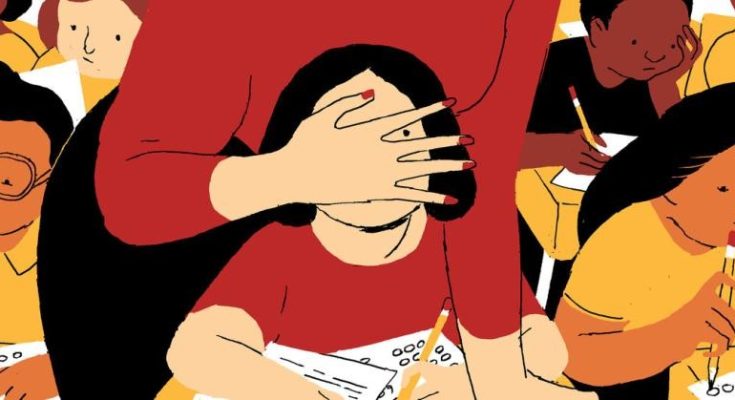he debate surrounding standardized testing in education is one of the most enduring and contentious discussions in modern pedagogy. On one side, proponents advocate for their role as objective measures of student achievement, tools for accountability, and mechanisms for comparing educational quality across schools and districts. On the other, a growing chorus of critics argues that these high-stakes exams narrow the curriculum, exacerbate inequities, induce undue stress, and ultimately fail to capture the full spectrum of a student’s learning and potential. The question of whether schools should ditch standardized testing is not simple, demanding a thorough examination of both their perceived benefits and their well-documented drawbacks.
Those who defend standardized testing often point to its utility as a consistent benchmark. In theory, these tests provide a universal yardstick, allowing educators, policymakers, and parents to see how students in one school compare to those in another, or how a district stacks up against state and national averages. This comparative data, proponents argue, is essential for identifying achievement gaps, allocating resources effectively, and holding schools and teachers accountable for student outcomes. For instance, if data from standardized tests reveal that a particular demographic group consistently underperforms in mathematics across a district, it can prompt targeted interventions, additional funding, or specialized professional development for teachers in those areas. The objective nature of standardized scoring, often performed by computers or independent evaluators, is seen as minimizing bias that might exist in subjective classroom grading, thereby offering a fairer assessment of foundational knowledge.
Furthermore, standardized tests can serve as a diagnostic tool, providing insights into areas where students, or even an entire curriculum, might be struggling. When results show a widespread weakness in a specific concept, it can signal to teachers that their instructional methods need adjustment or that a particular topic requires more dedicated time and resources. This feedback loop, in principle, allows for continuous improvement within the educational system. Parents, too, often find value in standardized test results as they offer an external perspective on their child’s academic progress, supplementing classroom grades and helping them understand their child’s standing relative to peers. From a policy perspective, standardized testing has been a cornerstone of accountability movements, aiming to ensure that all students, regardless of background, receive a quality education.
However, the criticisms against standardized testing are equally compelling and often deeply felt by students, teachers, and parents alike. Perhaps the most pervasive concern is the phenomenon of “teaching to the test.” When high-stakes outcomes—such as school funding, teacher evaluations, or even student graduation—are tied to test scores, the curriculum can inevitably narrow. Teachers may feel pressured to prioritize rote memorization of testable content and test-taking strategies over fostering deeper understanding, critical thinking, creativity, or a love for learning. Subjects not heavily featured on the tests, such as arts, music, and even science or social studies, can see their instructional time reduced, leading to a less holistic and well-rounded education. This can stifle innovation in the classroom and reduce the richness of the learning experience for students.
Moreover, standardized tests are frequently criticized for failing to capture the full scope of a student’s intelligence, abilities, and growth. They are snapshots of performance on a single day, influenced by a myriad of external factors such as test anxiety, fatigue, hunger, personal circumstances, or even the format of the questions themselves. A student who excels in project-based learning, collaborative problem-solving, or creative expression might perform poorly on a multiple-choice test, leading to an inaccurate representation of their true capabilities. This narrow focus can be demoralizing for students, impacting their self-esteem and potentially causing them to disengage from learning if they feel their intelligence is solely defined by a test score.
Another significant concern revolves around equity. Critics argue that standardized tests often reflect socioeconomic status more than true academic potential. Students from wealthier backgrounds typically have access to better resources, including test preparation courses, tutoring, and stable home environments conducive to studying. This creates an uneven playing field, putting students from low-income families or those with language barriers at a distinct disadvantage. The results can perpetuate achievement gaps rather than accurately measuring learning or promoting genuine equity. Furthermore, the sheer volume of standardized testing in some educational systems can lead to excessive stress and anxiety for both students and teachers, transforming learning into a high-pressure competition rather than an enjoyable journey of discovery.
If schools were to significantly reduce or ditch standardized testing, what could replace them? The shift would necessitate a greater reliance on a diverse portfolio of assessment methods that provide a more holistic and authentic picture of student learning. This could include project-based assessments, where students demonstrate understanding through hands-on creations or research projects; portfolio assessments, which collect a body of student work over time to showcase growth; performance-based tasks, such as oral presentations, scientific experiments, or dramatic interpretations; and formative assessments, which provide ongoing feedback to guide instruction rather than just measuring outcomes. These alternative methods often align more closely with real-world skills like collaboration, critical thinking, and communication, which are increasingly vital for future success.
In conclusion, the debate over standardized testing encapsulates a fundamental tension within education: the desire for accountability and comparable data versus the imperative to foster holistic development and equitable learning experiences. While standardized tests offer certain benefits in terms of benchmarking and identifying broad trends, their significant drawbacks, particularly in narrowing the curriculum, inducing stress, and potentially exacerbating inequities, suggest that an overreliance on them is detrimental. Moving forward, a more balanced and nuanced approach to assessment is crucial. This would involve reducing the high stakes associated with these tests, using them as one data point among many, and investing in a richer, more diverse array of authentic assessment methods that truly capture the breadth and depth of student learning and prepare them for the complexities of the modern world.


